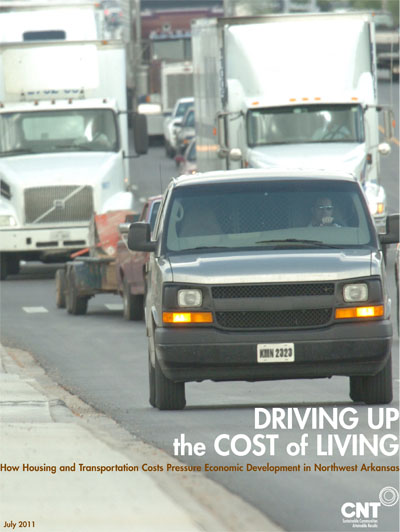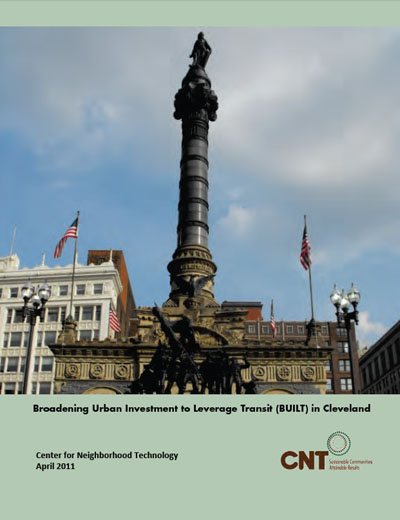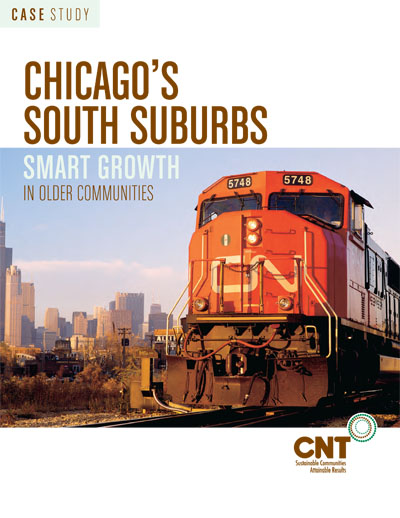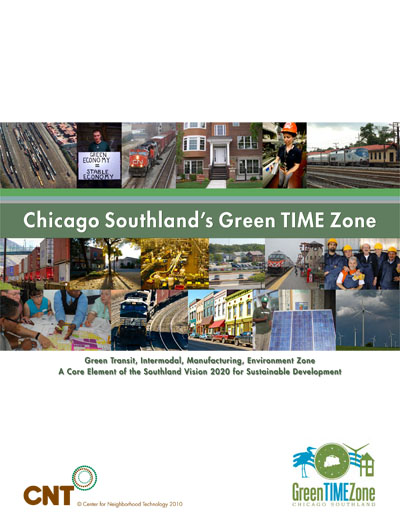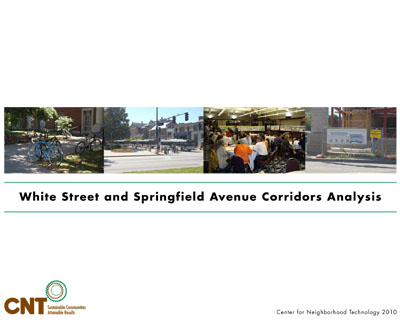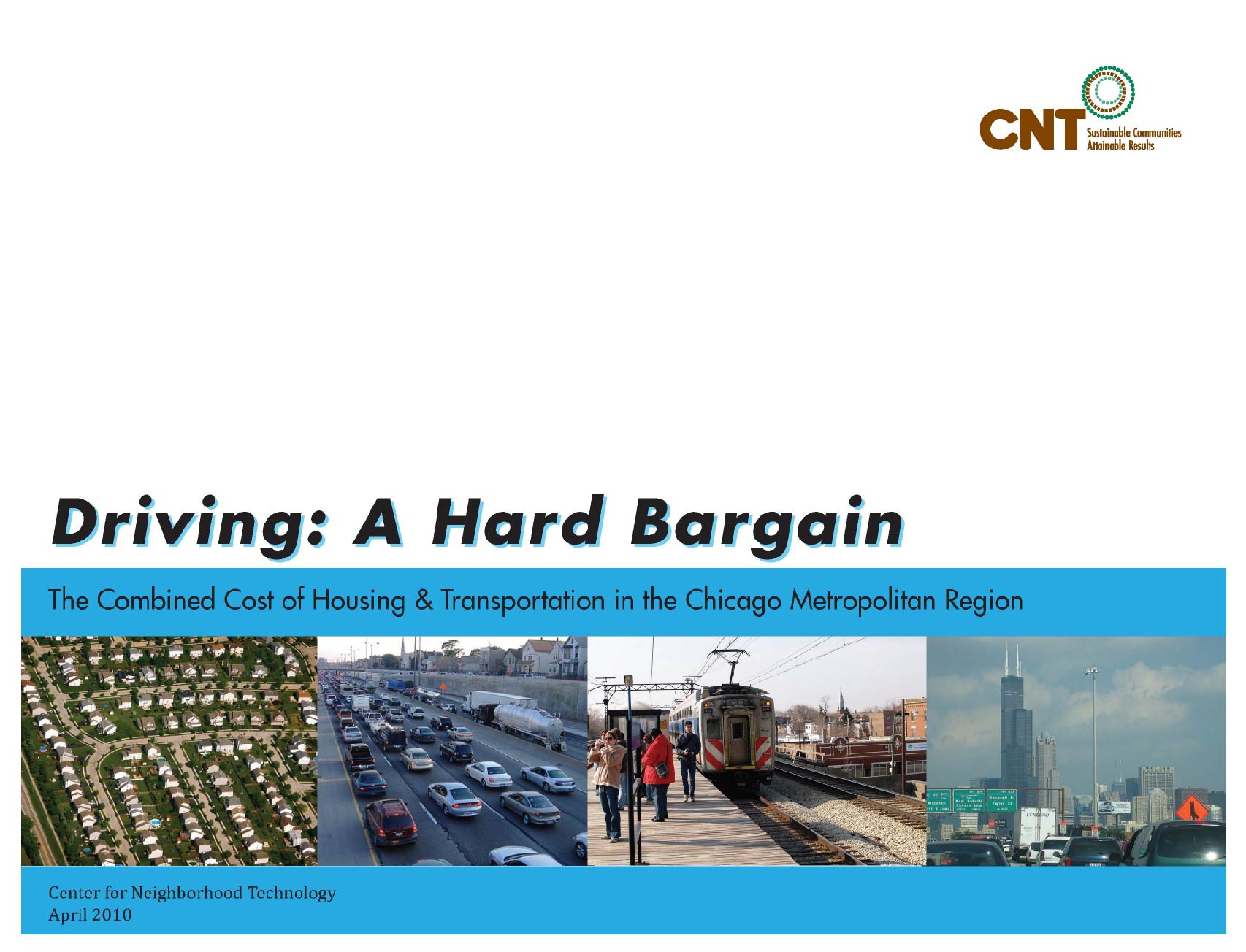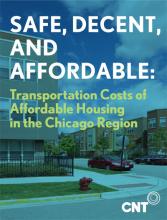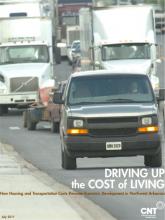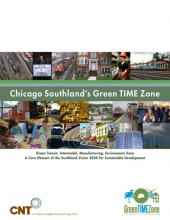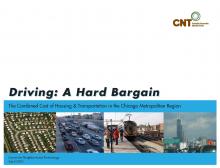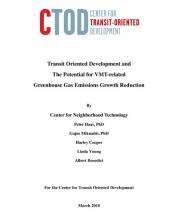CNT applied the H+T Index to 248 multifamily properties financed by the Illinois Housing Development Authority (IHDA) from 2001-2008 in the Chicago region. The study reveals the average transportation costs in these locations and measures the degree to which residents...Read more
Our Work
Topic: Transportation
Displaying 91 - 100 of 122Publication
topics: Equitable Transit Oriented Development, Housing, Transportation
CNT applied the H+T Index to 248 multifamily properties financed by the Illinois Housing Development Authority (IHDA) from 2001-2008 in the Chicago region. The study reveals the average transportation costs in these locations and measures the degree to which residents enjoyed access to local...
Publication
topics: Equitable Transit Oriented Development, Housing, Sustainable Economic Development, Transportation
This report examines the state of housing, transportation, and job access in Northwest Arkansas, which includes the four core cities of Bentonville, Fayetteville, Springdale, and Rogers. The analysis is supplemented by findings from 23 interviews of business leaders, elected officials, municipal...
Publication
topics: Cargo-Oriented Development, Equitable Transit Oriented Development, Policy, Sustainable Economic Development, Transportation
The effects of unemployment, rising gas costs, and economic uncertainty have pushed household budgets to their limits. Now, more than ever, the state’s infrastructure investments must bolster the economy and save its residents money. This report presents a policy blueprint to make these...
Publication
topics: Cargo-Oriented Development, Equitable Transit Oriented Development, Sustainable Economic Development, Transportation
This case study tracks CNT’s work in Blue Island and Harvey and discusses the regional partnerships that developed and attracted public funding for predevelopment; eventually creating a pipeline of viable projects that has drawn the attention of developers and investors across several states.
Publication
topics: Cargo-Oriented Development, Equitable Transit Oriented Development, Policy, Sustainable Economic Development, Transportation
The Green Transit, Intermodal, Manufacturing, Environment Zone (Green TIME Zone) is a core element of the Southland Vision 2020 for Sustainable Development.
Publication
topics: Data Analysis, Equitable Transit Oriented Development, Technical Assistance, Transportation
Designed as a user-friendly tool that gives interested people around the country the ability to evaluate the performance of the transit zones in their neighborhoods and towns.
Publication
topics: Equitable Transit Oriented Development, Transportation
Conducted as part of the multi-phase miPLAN’s Transportation Study, Champaign-Urbana Urbanized Area Transportation Study (CUUATS) – the transportation entity of the Champaign Regional Planning Commission (CCRPC), which completed its Long Range Transportation Plan 2025 in 2005.
Publication
topics: Equitable Transit Oriented Development, Transportation
Auto ownership and mileage per car are shown to vary in a systematic and predictable fashion in response to neighborhood urban design and socio-economic characteristics in the Chicago, Los Angeles, and San Francisco regions. In all three cases, average auto ownership is primarily a function of the...
Publication
topics: Housing, Transportation
The combined cost of housing and transportation in the Chicago metropolitan region.
Publication
topics: Climate, Equitable Transit Oriented Development, Transportation
Transit-oriented development – a mix of residential and commercial development within walking distance of public transportation – can play a substantial part in reducing greenhouse gas emissions.




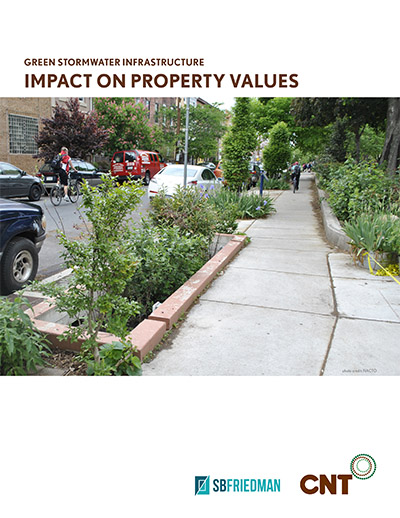
 Strengthening Transit Through Community Partnerships
Strengthening Transit Through Community Partnerships
